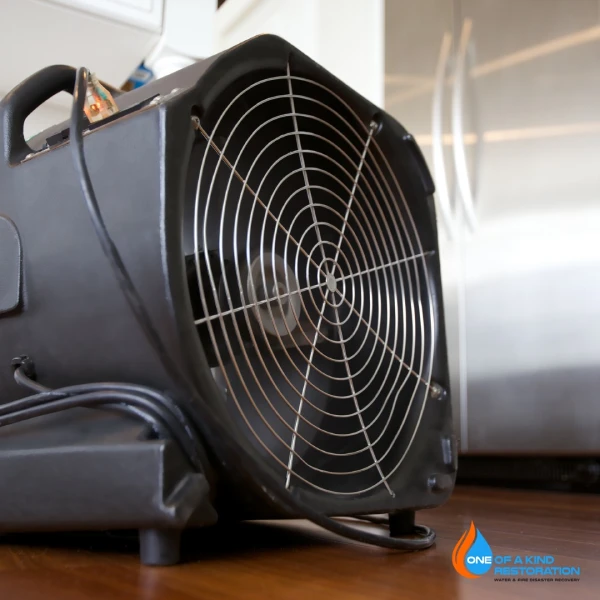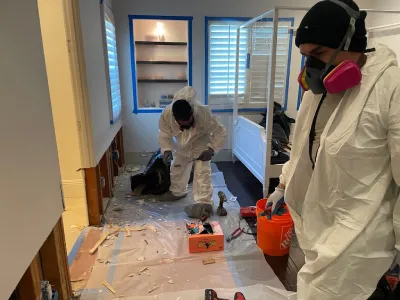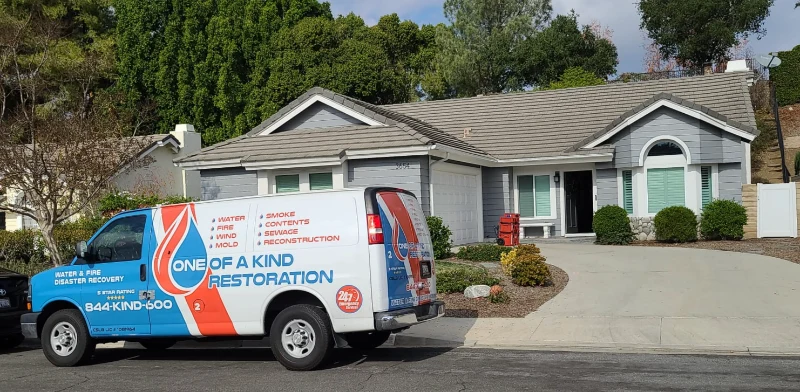How do Leak Detection Systems Work?
Leak detection systems are designed to monitor the flow of water and detect the presence of any leaks, typically before any significant damage has occurred. Leak detectors can be used in both residential and commercial properties. Leak detector systems work by monitoring for changes in water pressure or detecting the presence of water where it should not be. If a leak is detected, the system will send an alert to the property owner so that they can take action to mitigate the problem. There are two main types of detection systems; mechanical and electronic. The differences between these are:
- Mechanical leak detector systems work by monitoring water flow through a turbine. These systems observe the water flow pattern and can cut off the water if they detect a leak.
- Electronic leak detector systems use sensors to detect the presence of water. These sensors can be placed strategically around the property, such as near water heaters or under sinks.
There are several different types of water leak detectors available on the market today. Some leak detection systems use sensors that can be placed around the perimeter of a property, while others utilize a central control unit connected to the home’s plumbing system. Leak detector systems can also be integrated into a home’s security system, providing an added layer of protection against water damage.
Today, many homeowners prefer to use moisture-sensing leak detectors in their homes to help protect against leaks. These detectors are designed to sense moisture reaching the floorboards and trigger a mechanical valve to block water flow.
How Does a Mechanical Leak Detector Work?
A mechanical leak detector is a device that monitors water leaks in your home or office. By studying the physical flow of water, these systems can quickly identify and pinpoint problem areas. This type of leak detector uses an impeller to count the gallons as they pass through it, making it more accurate than other models (which only use sensors to measure humidity changes.) As water flows, it turns the blades on an impeller fan. By measuring and communicating the gallonage back to the system, engineers can identify sustained periods of water flow that suggest a slab leak is present.
There are two primary types of mechanical leak detectors: those that are installed on the main water line and those that are placed in line with the plumbing. Leak detectors installed on the main water line will require a plumber, but homeowners can install ones in line with the plumbing. A mechanical smart water leak detector typically has two modes: “Home” and “Away.” In the “Home” setting, the sensor in the ball valve will shut off the water supply after 30 minutes of uninterrupted flow, which allows residents to use appliances or water plants without triggering an alert. “Away” mode will send you a push notification to your phone or tablet if it detects any leak so that you may take appropriate action before the damage becomes too extensive. Some automatic shut-off valves are included with these detectors to turn off the water flow immediately upon sensing a leak, thus giving another layer of protection against costly repairs.
How Does an Electronic Leak Detector Work?
Electronic leak detectors are another option for homeowners who want to be proactive about preventing water damage. These systems send out an electrical signal to detect the presence of water. The signal is then relayed back to the system, which can be used to pinpoint the leak’s location.
Electronic detector systems can be combined with other types of sensors, such as pressure sensors, to provide the most comprehensive coverage possible. The pressure sensor is the most common electronic water leak detector. These sensors are designed to detect changes in water pressure and can be placed around the perimeter of a property or in areas where leaks are most likely to occur, such as under sinks or near water heaters.
Moisture sensors are another type of sensor used in water leak detector systems. These sensors work by detecting the presence of moisture and can be placed in areas where leaks are most likely to occur. Moisture sensors can also be used in combination with other types of sensors, such as pressure sensors, to provide the most comprehensive coverage possible.
Electric sensors also use ultrasonic waves to detect the presence of water. An electronic water leak sensor works by sending out ultrasonic waves that are reflected when they come into contact with water. The time it takes for the waves to be reflected back is then used to calculate the distance to the water, which can be used to find the leak’s location. These sensors can also be integrated into a home’s security system to provide a layer of protection against water damage.
These systems can be easily installed by a professional or the homeowner and they provide an effective way to monitor water usage and leaks. No matter what type of system you choose, it is essential to have a water leak detector in place to protect your property from water damage. Leaks can happen anytime and often go undetected until it is too late. By being proactive and installing a water leak detector system, you can rest assured that your home or office is protected against the costly damages resulting from a water leak.
With smart water leak detectors, you can have peace of mind knowing that your home or office is protected. Even if you own water treatment plants or live in a tiny house, at One Of A Kind Restoration, we specialize in the smart home integration of water systems, leak detectors, and water damage repair. We only use top-quality products such as sensing cables, battery-powered leak detectors for small leaks, thermal imaging sensors, sensing cables, eve water guards, and smart speakers. If you have frozen pipes or the battery life of your leak detector is dwindling, we can help. Contact us today; we look forward to serving you!







